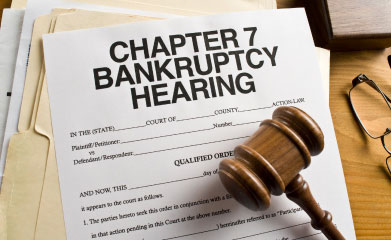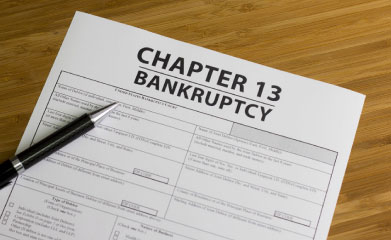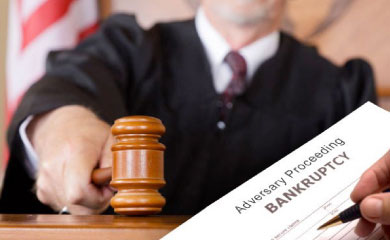Bankruptcy
Bankruptcy can be a viable solution to serious personal or business financial troubles. Whether the result of the 2020 pandemic, loss of job or business revenue, or other reasons for overwhelming debt ranging from divorce to exorbitant medical bills. Anyone can find themselves in a situation where their income, savings, and insurance are just not enough. Bankruptcy protection exists for these situations.
Commencing a bankruptcy case immediately stops creditors’ collection actions against you and your property. Garnishment of wages, calls from collection agencies, and lawsuits seeking debt repayment, such as foreclosures, are among the types of actions that come to a halt while your bankruptcy is pending.
When considering bankruptcy, the earlier you consult an expert bankruptcy attorney, the better. Rely on our attorneys who have extensive experience in all phases of the process to help you decide if bankruptcy is the answer for you, and if it is, to guide you in navigating the laws and requirements that govern this complex arena.

Chapter 7
Chapter 7 is the most common type of bankruptcy, usually filed by individuals rather than businesses (although, in some cases, the latter may apply). It is sometimes called liquidation bankruptcy, as it involves the sale of certain non-exempt assets to pay creditors.
This essentially involves placing the non-exempt assets you own in the hands of the Bankruptcy Court, which then liquidates those assets to pay creditors. The process requires full financial disclosure of all your assets, income, and debts in the hope of ultimately releasing you from personal liability for your debts and enabling a fresh start.
Chapter 13
Chapter 13 is also a common solution for individuals rather than businesses. It is sometimes referred to as an individual debt reorganization, as it allows those with regular income to retain property and, based on income, repay part or all debts owed over a three- to five-year period through monthly payments to a Chapter 13 trustee and pursuant to a written plan of reorganization approved by the Bankruptcy Court.


Chapter 11
Chapter 11 generally applies to businesses, used by corporations, partnerships and limited liability companies, and is a considerably more complex bankruptcy filing than Chapter 7 and 13. It requires putting together and submitting a detailed reorganization plan designed to repay creditors over time, with their approval.
The reorganization plan places types of debt into specific categories or classes, in a prioritized sequence of repayment to creditors. In most cases, you continue to operate your business as usual, as “debtor in possession,” although the Bankruptcy Court has control over any major decisions such as sale of assets, entering into or breaking a lease, or entering into new or expanded agreements with vendors, contractors and the like. The plan also usually includes some form of downsizing to free up assets and reduce expenses.
Adversary Proceedings
In the middle of an existing bankruptcy case, it is possible for creditors, the bankruptcy trustee, or the debtor to still take action against you in the form of an adversary proceeding. This is a lawsuit filed commenced separately from but related to a bankruptcy case designed to resolve certain types of disputes as they cannot be handled in the bankruptcy case itself.
Adversary proceedings can take many forms. For example, if a debtor tries to hide assets, a chapter 7 trustee may commence an adversary proceeding seeking to deny the debtor a discharge. Another example, a creditor may commence an adversary proceeding against a debtor seeking a determination that a particular debt is nondischargeable if the creditor believes the debt was through fraud. Still another, a trustee may commence an adversary proceeding against third parties seeking recovery of assets if they were obtained from the debtor for less than fair value.

These are just a few common examples of adversary proceedings. Whether you are seeking to defend against such a proceeding or seeking to file a complaint of this type, it is essential to enlist the help of experienced bankruptcy attorneys with a history of successfully dealing with these types of claims, such as those at Lester Korinman Kamran & Masini, P.C.
The laws pertaining to bankruptcy are highly complex. It’s in your best interest to seek experienced legal counsel as early as possible in the process. Our firm’s expert attorneys will aggressively advocate for you, as they have successfully done for many others.






